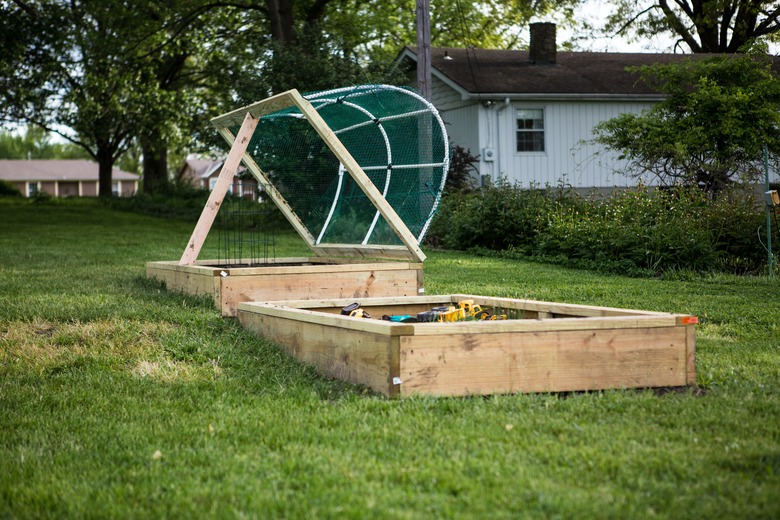How To Plant Roses In Clay Soil
Roses (Rosa spp.) add an air of sophistication and timeless beauty to any garden. Choosing the right site for your rose bushes is key to their success.
According to the Clemson Cooperative Extension, roses need soil that is loose, drains well and is rich in organic matter. Clay soils do not meet these requirements; however, they can be amended in order to support roses.
Can Roses Grow in Wet Clay Soil?
Roses do not perform well in clay soils. This is in part because clay soil is compacted and makes it difficult for the rose bush's roots to spread properly and become well established.
Clay soil also retains too much water, which will cause roses to deteriorate and can lead to the development of a serious fungal disease known as Phytophthora root rot, explains the University of Tennessee Institute of Agriculture.
According to the Oklahoma State University Extension, if soil feels like modeling clay when it's wet, it contains too much clay to grow roses.
One way to know if soil is appropriate for growing roses, says the University of Illinois Extension, is to dig a hole 18 inches deep and fill it with water. The water should drain in about five to six hours.
Amending Clay Soil for Roses
If you want to grow roses or other flowers in clay soil, you will need to amend it first in order to aerate the soil and improve drainage.
According to the Colorado State University Extension, you can amend clay soil with 1/3 compost in order to make it suitable for growing roses. It is important not to add too much compost, however, as this can limit the amount of available nitrogen, which roses also need to thrive. There are also soil conditioners for clay soil on the market that you can purchase.
The type of soil is not the only factor to consider when growing roses; the right pH is also important. Roses prefer soil that is slightly acidic, so aim for a pH of about 6.0. A soil test is often necessary to determine the pH of the soil.
If the soil is too alkaline, you can incorporate sulfur to lower the pH. Conversely, if the soil with which you are working is too acidic, work in hydrated lime to raise the pH.
It is best to make amendments to clay soil well in advance of planting roses in order to give the soil enough time to settle.
Growing Roses in Raised Beds
In some cases, the solution to growing roses where the soil has a high clay content is to plant them in raised beds. This helps to improve the drainage.
The Mississippi State University Extension recommends filling the planter with a mixture that consists of one part topsoil, one part builder's sand and one part organic matter, such as compost.
When choosing a location for raised rose beds, keep in mind that roses need at least eight hours of direct sunlight a day, as well as proper air circulation to prevent diseases.
References
- Oklahoma State University Extension: Roses in Oklahoma
- University of Nebraska-Lincoln: Frequently Asked Rose Questions
- Clemson Cooperative Extension: Growing Roses
- Colorado State University Extension: Selecting and Planting Roses
- University of Tennessee Institute of Agriculture: Rose Diseases: Identification and Management
- University of Illinois Extension: Our Rose Garden – Site Selection & Bed Preparation
- Mississippi State University Extension: Site Selection, Bed Preparation and Planting of Roses

